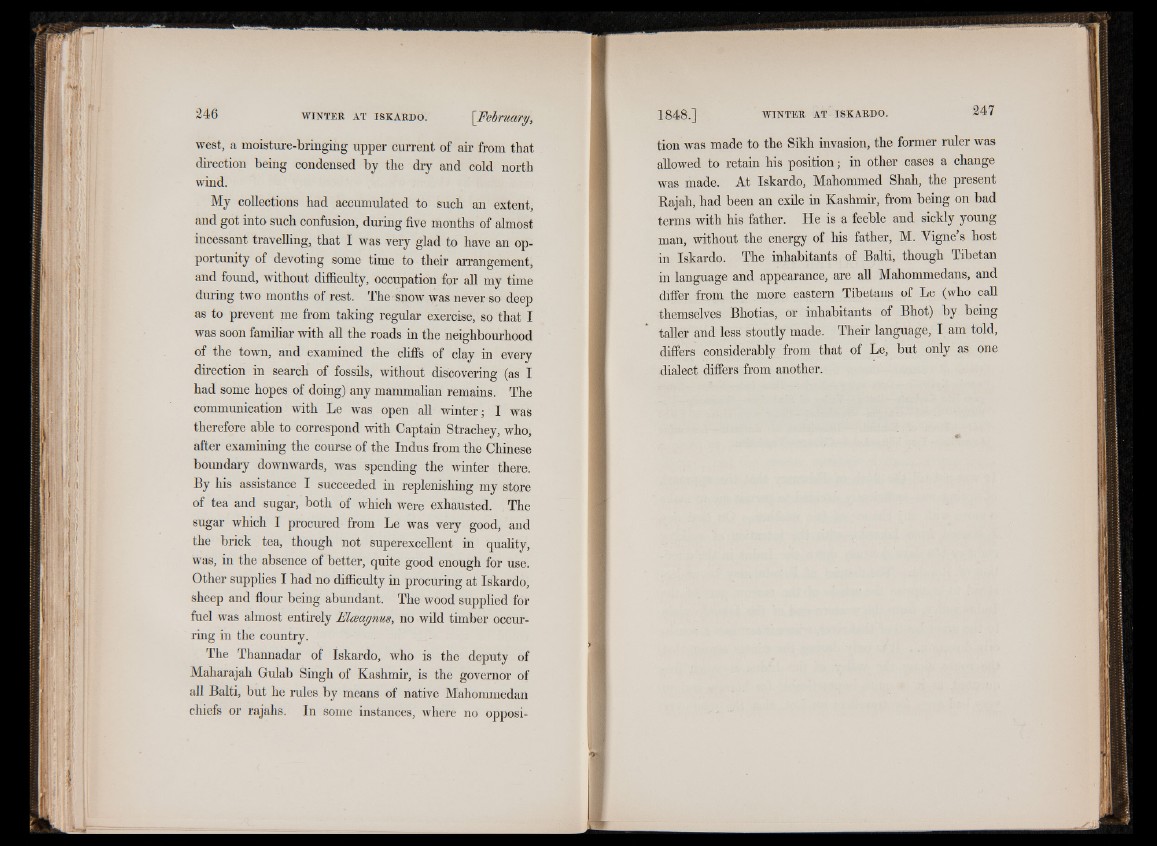
west, a moisture-bringing upper current of air from that
direction being condensed by the dry and cold north
wind.
My collections had accumulated to such an extent,
and got into such confusion, during five months of almost
incessant travelling, that I was very glad to have an opportunity
of devoting some time to their arrangement,
and found, without difficulty, occupation for all my time
during two months of rest. The snow was never so deep
as to prevent me from taking regular exercise, so that I
was soon familiar with all the roads in the neighbourhood
of the town, and examined the cliffs of clay in every
direction in search of fossils, without discovering (as I
had some hopes of doing) any mammalian remains. The
communication with Le was open all winter; I was
therefore able to correspond with Captain Strachey, who,
after examining the course of the Indus from the Chinese
boundary downwards, was spending the winter there.
By his assistance I succeeded in replenishing my store
of tea and sugar, both of which were exhausted. The
sugar which I procured from Le was very good, and
the brick tea, though not superexcellent in quality,
was, in the absence of better, quite good enough for use.
Other supplies I had no difficulty in procuring at Iskardo,
sheep and flour being abundant. The wood supplied for
fuel was almost entirely Elceagnns, no wild timber occurring
in the country.
The Thannadar of Iskardo, who is the deputy of
Maharajah Gulab Singh of Kashmir, is the governor of
all Balti, but he rules by means of native Mahommedan
chiefs or rajahs. In some instances, where no opposition
was made to the Sikh invasion, the former ruler was
allowed to retain his position; in other cases a change
was made. At Iskardo, Mahommed Shah, the present
Rajah, had been an exile in Kashmir, from being on bad
terms with his father. He is a feeble and sickly young
man, without the energy of his father, M. Vigne’s host
in Iskardo. The inhabitants of Balti, though Tibetan
in language and appearance, are all Mahommedans, and
differ from the more eastern Tibetans of Le (who call
themselves Bhotias, or inhabitants of Bhot) by being
taller and less stoutly made. Their language, I am told,
differs considerably from that of Le, but only as one
dialect differs from another.